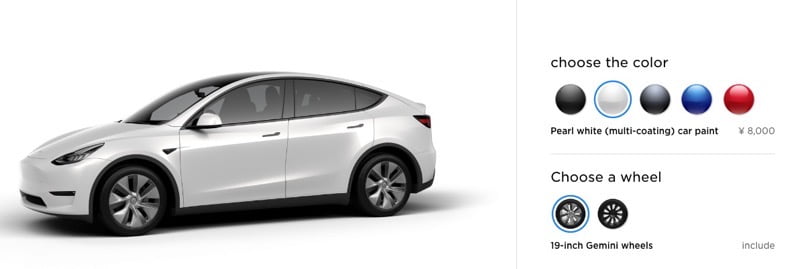
Tesla Model Y Sales Surged in China in February, Topping Local Rivals

After a slow winter, Tesla has delivered a major blow to Chinese automakers like Xpeng Motors with a major price cut in the country’s auto market.
In February, Tesla delivered 4,630 Model Y units in China, an almost threefold increase from just 1,641 in January, according to data from the China Passenger Car Association (via South China Morning Post). The increase in sales follows a price cut of almost 30% for the Model Y, down to just 339,000 yuan ($51,935 USD).
China’s Xpeng Saw EV Sales Soar in Q4, But Then Came Tesla’s Model Y Price Cut https://t.co/DjnjsjUbjB
— TeslaNorth.com (@RealTeslaNorth) March 8, 2021
Shanghai independent analyst Gao Shen said, “February sales figures proved that Tesla’s Model Y has become a threat to the Chinese rivals, particularly after a heavy price reduction.”
While Tesla rivals NIO and Xpeng saw sales surges of 352% and 470% in January, respectively, the companies both reported major losses in February. NIO delivered 5,578 units in February, down 22.8% from its soaring January numbers. Similarly, Xpeng sales dropped 63% in February, with just 2,223 units delivered.
2021 Jan & Feb EV sales data comparison in China. pic.twitter.com/j5SF9w899C
— T-Study (@Cinco971) March 9, 2021
Even as Tesla’s Model Y deliveries increased, deliveries of the company’s Model 3 remained about the same, with 13,688 units delivered in February. Tesla saw a total of 18,318 vehicles delivered in China for February; this number doesn’t include exports from Giga Shanghai. The number is impressive given the short month in February, which included Chinese New Year holidays.
Tesla’s sales also tend to increase nearing the end of each quarter, as the company usually encourages extra production pushes to meet delivery goals.
The news also follows a global semiconductor chip shortage, which has affected a number of auto companies in recent weeks, including Chinese EV startup NIO.
Deliveries of EVs in China totaled 97,000 units in February, down 38% from the previous month, and following sales disruptions from the country’s week-long Lunar New Year holiday, celebrated between February 11 and 17.

